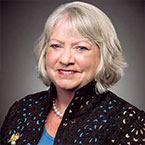By: Karen Remley, MD, MBA, MPH, FAAP & Michelle Gurvitz, MD, MS, FACC, FAAP
Having a baby is a special, life-changing experience. But families face unique challenges when their baby is born with a congenital heart defect.
A congenital
heart defect is a problem with the heart that is present at birth. For example, a baby may be born with a hole in their heart or a leaky valve. Sometimes, the heart defect is more severe, and their heart has missing vessels or chambers or is not fully formed.
Web pages whose development was supported by federal government grants are being reviewed to comply with applicable Executive Orders.
Fortunately, people with heart defects are living longer, healthier lives. But even if a heart defect has been surgically repaired and is not causing symptoms, your child needs to continue to see a pediatric cardiologist who can catch any problems early and keep your child healthy.
Read on to learn more about lifelong care for people with congenital heart defects.
Consider how congenital heart defects affect your child's development.
Children with heart defects may
meet developmental milestones at a different pace. Young children may benefit from early intervention support as they learn new skills and work through challenges.
Parents, you know your child best. Do not hesitate to ask your pediatrician if you have any concerns about the way your child plays, learns, speaks, acts or moves. Learn more
here.
In school, they may reach milestones on a different timeline than peers without heart defects. And sometimes, your child may have to miss school for appointments, tests or other procedures.
No matter your child's age, your pediatrician can explain other types of support, such as
milestones,
learning and
other concerns.
Make sure your child has a role in their congenital heart defect care.
From an early age, your child should be involved in their own care with their pediatric cardiologist and other health care providers. This can help them feel more confident in their own health decisions as they move into their adult life. Your child's health care team can help identify risks and support their nutritional, exercise and cardiac their changing needs as they develop and grow.
Prepare to move from pediatric to adult cardiac care.
Children with congenital heart defects need to continue their congenital cardiac care into adulthood. The pediatric cardiologist that has cared for your child may only see them up to a certain age. When they are old enough, they need to start seeing an adult congenital cardiologist who can make sure they stay healthy as an adult.
Families should begin planning for this
transition well before they become an adult. Help them prepare to take on more responsibility for their health. This will help them learn how to schedule doctor visits, understand health insurance and keep track of their medications in
college and beyond. Learn more about healthy living with a congenital heart defect as an adult:
If you're helping your child prepare to manage their own heart health care as an adult, or have questions about health insurance medical bills yourself, this video can help:
Stay connected with others in your community.
It is not unusual to feel alone or isolated when you find out your child or family member has a heart defect. You may feel a range of emotions, including sadness, fear, guilt and confusion.
Ask your pediatrician or other health care provider for a referral to a community support group or connection with a family who has experienced a similar situation. Several free resources are offered to families:
More information
About Dr. Remley
 Karen Remley, MD, MBA, MPH, FAAP, is the Director for the
National Center on Birth Defects and Developmental Disabilities (NCBDDD). Prior to joining NCBDDD, Dr. Remley served as Senior Adviser of COVID-19 Response for the Virginia Department of Health. Dr. Remley has served on many national committees and commissions working on public health education, health equity, and patient safety, including as Chief Executive Officer of the American Academy of Pediatrics, Commissioner of Health for the Commonwealth of Virginia, Chief Medical Director of Anthem Blue Cross Blue Shield Virginia and Chief Executive Officer of Physicians for Peace. Karen Remley, MD, MBA, MPH, FAAP, is the Director for the
National Center on Birth Defects and Developmental Disabilities (NCBDDD). Prior to joining NCBDDD, Dr. Remley served as Senior Adviser of COVID-19 Response for the Virginia Department of Health. Dr. Remley has served on many national committees and commissions working on public health education, health equity, and patient safety, including as Chief Executive Officer of the American Academy of Pediatrics, Commissioner of Health for the Commonwealth of Virginia, Chief Medical Director of Anthem Blue Cross Blue Shield Virginia and Chief Executive Officer of Physicians for Peace.
|
About Dr. Gurvitz
 Michelle Gurvitz, MD, MS, FACC, is an Associate Professor of Pediatrics at Harvard Medical School and a cardiologist with Pediatric Cardiology and the Boston Adult Congenital Heart program at Boston Children's Hospital and Brigham and Women's Hospital. She is past chair of the steering committee of the Congenital Heart Public Health Consortium, a founding member of the Alliance for Adult Research in Congenital Cardiology and her research has been funded by the National Institutes of Health, CDC and the Pediatric Heart Network. Dr. Gurvitz is also Fellowship Director for Harvard Combined Adult Congenital Heart Disease program and maintains an active clinical practice seeing adolescents and adults with congenital heart defects. Michelle Gurvitz, MD, MS, FACC, is an Associate Professor of Pediatrics at Harvard Medical School and a cardiologist with Pediatric Cardiology and the Boston Adult Congenital Heart program at Boston Children's Hospital and Brigham and Women's Hospital. She is past chair of the steering committee of the Congenital Heart Public Health Consortium, a founding member of the Alliance for Adult Research in Congenital Cardiology and her research has been funded by the National Institutes of Health, CDC and the Pediatric Heart Network. Dr. Gurvitz is also Fellowship Director for Harvard Combined Adult Congenital Heart Disease program and maintains an active clinical practice seeing adolescents and adults with congenital heart defects. |
Editor's note: The findings and conclusions in this report are those of the authors and do not necessarily represent the official position of the Centers for Disease Control and Prevention.
Additional information regarding congenital heart defects and lifelong cardiac care is available at the National Center on Birth Defects and Developmental Disabilities (NCBDDD) website, www.cdc.gov/heartdefects, and the Congenital Heart Public Health Consortium (CHPHC) website, www.chphc.org. The CHPHC is supported by cooperative agreement Number NU38OT000282, funded by the Centers for Disease Control and Prevention.
The CHPHC was formed in an effort to utilize public health principles to affect change for those whose lives are impacted by CHD. Organizational members of the CHPHC represent the voice of providers, patients, families, clinicians and researchers.